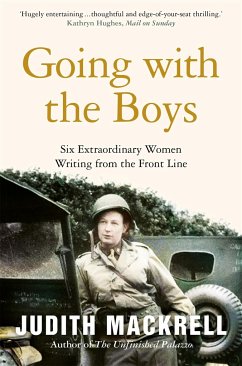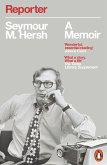'They were not just reporters; they were also pioneers, and Judith Mackrell has done them proud.' -Spectator
Going with the Boys follows six intrepid women as their lives and careers intertwined on the front lines of the Second World War.
Martha Gellhorn got the scoop on D-Day by traveling to Normandy as a stowaway on a Red Cross ship; Lee Miller went from being a Vogue cover model to the magazine's official war correspondent; Sigrid Schultz hid her Jewish identity and risked her life by reporting on the Nazi regime; Virginia Cowles, transformed herself from 'society girl columnist' to combat reporter; Clare Hollingworth was the first English journalist to break the news of the war, while Helen Kirkpatrick was the first woman to report from an Allied war zone to be granted equal privileges to her male colleagues.
Barred from official briefings and from combat zones, their lives made deliberately difficult by entrenched prejudice, all six set up their own informal contacts and found their own pockets of war action. In this gripping, intimate and nuanced account, Judith Mackrell celebrates these extraordinary women and reveals how they wrote history as it was being made, changing the face of war reporting forever.
'This is a book that manages to be thoughtful and edge-of-your-seat thrilling.' - Mail on Sunday
'Like the copy filed by her subjects, it is an essential read.' - BBC History Magazine
Going with the Boys follows six intrepid women as their lives and careers intertwined on the front lines of the Second World War.
Martha Gellhorn got the scoop on D-Day by traveling to Normandy as a stowaway on a Red Cross ship; Lee Miller went from being a Vogue cover model to the magazine's official war correspondent; Sigrid Schultz hid her Jewish identity and risked her life by reporting on the Nazi regime; Virginia Cowles, transformed herself from 'society girl columnist' to combat reporter; Clare Hollingworth was the first English journalist to break the news of the war, while Helen Kirkpatrick was the first woman to report from an Allied war zone to be granted equal privileges to her male colleagues.
Barred from official briefings and from combat zones, their lives made deliberately difficult by entrenched prejudice, all six set up their own informal contacts and found their own pockets of war action. In this gripping, intimate and nuanced account, Judith Mackrell celebrates these extraordinary women and reveals how they wrote history as it was being made, changing the face of war reporting forever.
'This is a book that manages to be thoughtful and edge-of-your-seat thrilling.' - Mail on Sunday
'Like the copy filed by her subjects, it is an essential read.' - BBC History Magazine
Women's ability to cope was apparently beyond military imagination, yet ironically, as Judith Mackrell's compelling book shows, navigating newspaper bias and military restrictions often gave women the professional edge . . . They were not just reporters; they were also pioneers, and Judith Mackrell has done them proud. Clare Mulley Spectator








